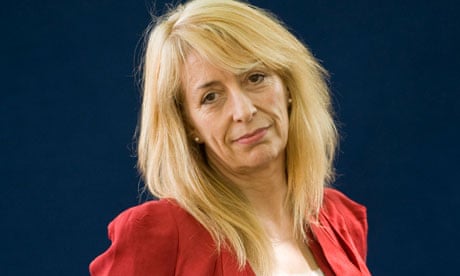Controversy has erupted over comments made by the leading neuroscientist Lady Susan Greenfield suggesting links between the increase in internet usage and the rise in autism.
A fellow Oxford professor condemned the remarks as "illogical garbage", while autism campaigners have described them as "unhelpful speculation" that would upset sufferers of behavioural and communication disorders and their families.
Dr Dorothy Bishop, a professor of neuropsychology at Oxford, wrote an open letter to Greenfield, saying that while she had admired her and been delighted when she became the first woman to deliver the Royal Institution Christmas lectures in 1994, she was "dismayed by the way in which your public communications have moved away from science" and accused her of giving opinions when no evidence existed to back them.
More recently, Bishop said: "Your speculations have wandered on to my turf and it's starting to get irritating. You mention the rise in autism as evidence for your concerns about the impact of the internet on children's brains... You may not realise just how much illogical garbage and ill-formed speculation parents of these children are exposed to. Over the years they've been told their children's problems are caused by [a] cold style of interaction, inoculations, dental amalgams, faulty diets, allergies, drinking in pregnancy – the list is endless."
Bishop later told the Observer that she had been upset that Greenfield, in an article in New Scientist, had apparently ignored a body of evidence that suggested most, if not all, of the rise in autism was down to a widening of the diagnostic criteria and better understanding of the condition by medical practitioners.
"Most cases are diagnosed around the age of two, when not many children are using the internet. You don't suddenly get autism in the middle of your childhood," Bishop said. "And this rise has been documented over the past 20 years, long before Twitter and Facebook."
Greenfield, the former director of the Royal Institution, said she found it "sad" that Bishop had not picked up the phone to discuss her concerns. "We are colleagues, after all, and I have a lot of respect for Dr Bishop's work. However, it's not really for Dorothy to comment on how I run my career."
She said that she also had several scientific studies to back up her concerns about the impact technology may be having on young minds. "I'm not just sitting here staring out of my window and making something up to talk about," she said.
"It could be the case that this different environment is changing the brain in an unprecedented way. It's such an important issue and I'm just putting it before people to discuss." Greenfield said there was a need for work to be done, but measuring subtle changes in the brain was extremely difficult. She cited an article in Scientific American that showed US teenagers may be losing their ability to feel empathy. "When you are social networking online and not learning how to connect face to face or how to hug, not out there rehearsing these things, then could that mean a child goes on to exhibit autistic-like behaviour?
"I point to the increase in autism and I point to internet use. That's all. Establishing a causal relationship is very hard but there are trends out there that we must think about. I have not said that internet use causes autism and I would apologise to any family who is upset by anything I have said."
She added: "I have never, ever said that the internet is bad for the brain. But if the environment is changing, then the brain will change to adapt. All I have ever said is, let's talk about this. The internet has become the central iconic feature of young people's lives and to say our brains will not be affected by that is to deny our evolutionary heritage."
Tom Madders, head of campaigns at the National Autistic Society, said: "The claims of Baroness Greenfield do seem to be largely speculative. We've had in recent years everything from MMR to early TV viewing and drinking in pregnancy blamed for autism, but none of these could be properly substantiated.
"It's very unhelpful, too, to have any suggestion that computers might have a harmful role when so many people with autism, and who are very socially isolated, find they can communicate through email and the internet.
"Really, the rise in the numbers being diagnosed means we are much better at picking it up and the far more important issue is what support and intervention people are getting. We know two thirds of adults with autism are not getting support and are left in isolation."


Comments (…)
Sign in or create your Guardian account to join the discussion